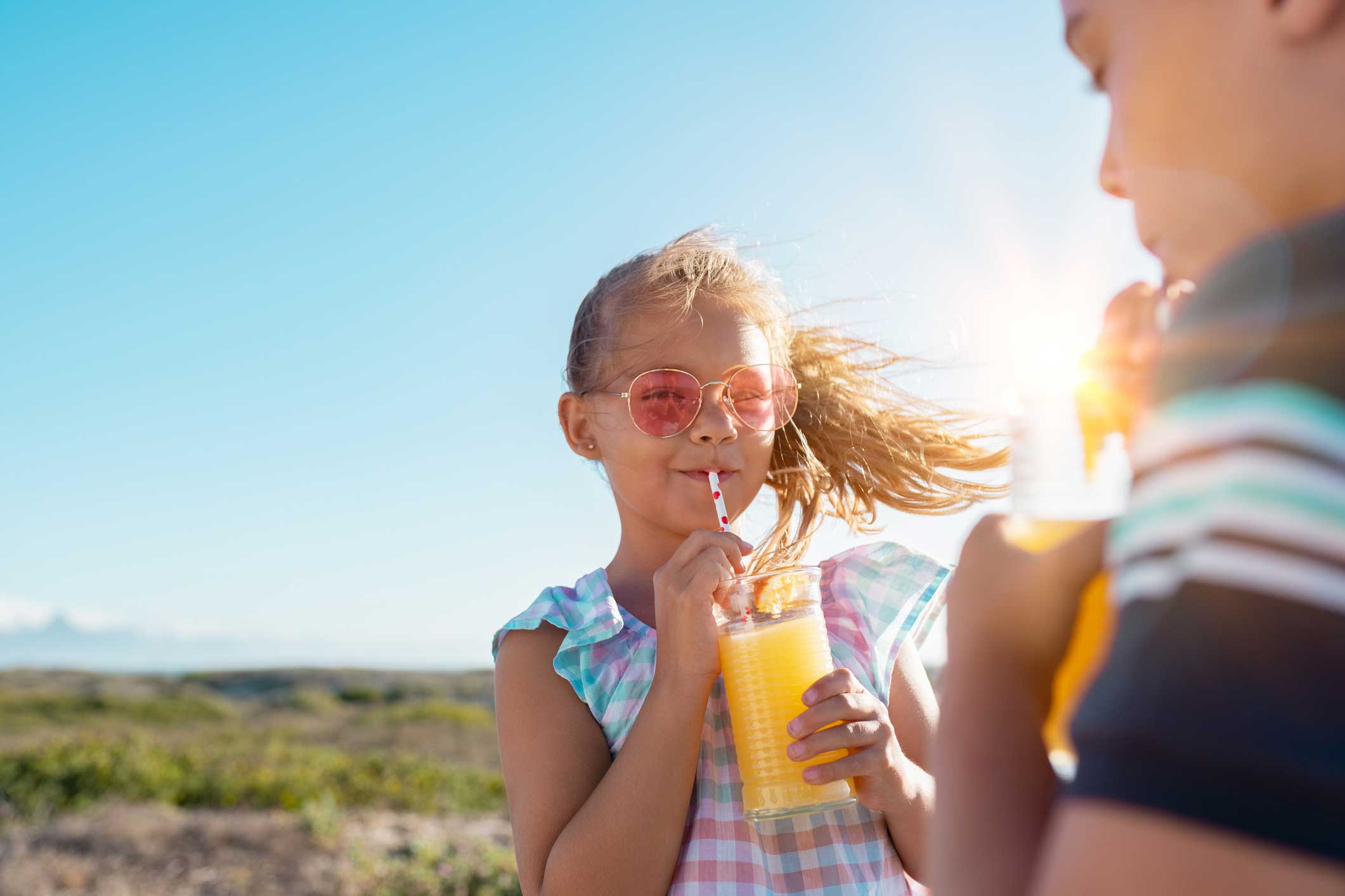Dehydration, no matter what age you are, is a lack of water in the body due to heat, sweating, vomiting, diarrhea, or fever. During an Arizona summer, dehydration is quite common due to the extreme heat.
Keeping yourself cool and hydrated during the summer months, especially if you’re pregnant, is crucial. The same goes for your little one. No matter how old they are, kids and babies love to be outside, by the pool, in the sprinklers, even if it is 110-degrees out there. So, it’s your responsibility to keep your kids safe by keeping them cool and hydrated.
Babies and Dehydration
Preemies are at the greatest risk for infant dehydration simply because their little bodies are more susceptible. They might not be eating enough yet, or getting enough fluids yet to be able to stay hydrated. Babies of all ages, however, are at a greater risk for dehydration than parents because their bodies have a limited ability to retain the extra fluids needed to avoid dehydration, and most babies sweat at a much greater rate than adults. A baby’s metabolism is higher than an adults, thus they use more water and yet their kidneys are not quite advanced enough to retain and conserve the water needed to avoid dehydration.
Babies love to be swaddled and cuddled, but consider lighter blankets, lighter clothes, or diaper only during any swaddling.
Avoiding Dehydration
In Arizona, it’s crucial that you help your child get enough fluids, whether it’s water, breast milk, or foods that contain a lot of water such as watermelon. Be aware of how much your child is sweating as a barometer of how hot or hydrated he or she might be. Be aware of how hot the car can get, and perhaps consider having the air on for a while before getting your child into their car seat.
Always be aware of how much sun your child is getting, and if you’re outdoors do what you can to stay in the shade.
Signs of Dehydration
Dehydration can range from very mild to extremely severe, so be aware of the following symptoms and signs.
Mild dehydration:
- Headache
- Thirsty
- Reduced amount of urine or it is a dark yellow color
- Feeling dizzy or lightheaded
- Dry skin
- Excessive sleepiness (more tired than usual)
- Constipation
Severe dehydration (call your pediatrician immediately):
- Extremely thirsty
- Extreme fussiness, sleepiness, irritability, or confusion
- Gaunt looking eyes
- Mouth feels dry or sticky
- Sunken soft spot on infant’s head
- Not having urinated in the last 6 to 8 hours for babies or 12 hours for children
- Rapid heartbeat or breathing
An Arizona summer is nothing to take lightly, especially if you’re pregnant or have a new baby in the home. Keep a close eye on their behavior, look for signs of dehydration, and give them plenty of water. If you’re not sure, call your pediatrician.
If you would like to meet with a knowledgeable doctor, consider contacting Women’s Health Arizona. As Arizona’s largest ObGyn group, we’re trained and solely dedicated to delivering the best ObGyn experience in convenient and comfortable settings around Phoenix.

